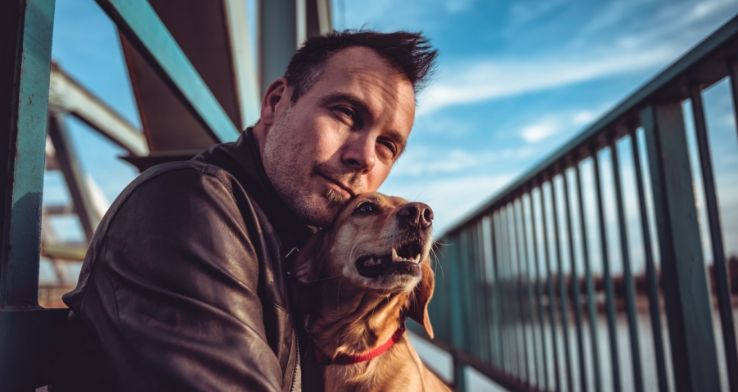What happens if you die before your cat or dog? Or become so incapacitated that you cannot care for your pets?
These are questions being addressed as more people are considering estate planning for pets.
Pets are property
In the eyes of the law pets are property, but understands that they are different than a piece of furniture, for example. Pets enjoy protections that other forms of property do not, such as laws prohibiting acts of cruelty and abandonment.
In fact, animal abandonment is illegal in every state in the country. And most states have anti-cruelty laws, though the definitions of what is cruel vary widely.
In 2019 to help address some of these disparities, the President signed the PACT Act. The law designates some acts of animal cruelty a federal felony.
However, from a legal perspective pets are still considered possessions. Yet for many people their pets are full-fledged members of the family.
A recent study found that a third of pet guardians prefer their four-legged charges to their human ones. And companion animals are the subject of bitter custody fights when couples separate.
So estate planning for pets gives beloved four-legged family members the chance to be rehomed according to their guardians’ wishes.
Types of pet trusts
It is important to have a written, legal document detailing your specific wishes regarding your pet’s care. A pet plan should not be left to chance.
All states honor traditional trusts, which require you to choose a trustee who will pay your designated beneficiary as long as he or she cares for your pet. And every state has pet trust laws.
Any trust can be a living trust – which is in force while you are alive – or a testamentary trust that is in effect after you die.
Although a living trust can be expensive to set up, it offers more protection if you are disabled, hospitalized or otherwise unable to care for your pet for an extended period of time.
Consult an attorney to determine the type of legal structure that best suits your needs.
Estate planning for pets means having a plan for the unexpected
Death is not the only reason that estate planning for pets is necessary.
You may be hospitalized, become incapacitated or disabled. A natural or other disaster might separate you from your pet for an extended period of time.
A responsible pet plan outlines the nature of care that your pet requires to be safe, healthy, and happy.
Who will know how to contact your veterinarian, whether your pet is taking medication, or needs a special diet?
Equally important is what you do not want to happen to your pet. For example, perhaps your pet would not do well in a home with small children or in a multi-pet household.
The Humane Society of the United States provides a free information guide on the essentials of a good pet plan.
How to choose a pet guardian
Perhaps the most important decision you can make is choosing who will take care of your pet if you are unable to do so as a result of injury, disability or death.
This is the person who will interact every day with your dog or cat. It should be someone who is familiar with your pet, who is able and willing to care for her, and who can be trusted to follow the wishes outlined in your pet plan.
If no one is available to undertake this responsibility contact area rescues, sanctuaries or animal welfare organizations. Ask about arrangements for them to serve as your pet’s guardian or to agree to rehome your pet if you die.
Above all, do not leave your pet’s future to chance or assume that a family member will be the best choice. Animals grieve. Your pet will be distressed by your absence and deserves to be cared for by someone who is truly up to the task.












Thanks for sharing this. I really love animals and learning more about estate planning. Your post was really helpful. Great information here!
Hi P4P,
Sad that pets are still considered “property” by law. I understand the conveniences for the courts but I’ll never understand how a sentient being can be considered a thing rather than an individual.
Anyone can go at any time. Too few people set up a will. Fewer still include their pets though it does happen.
A pet should be looked after well upon and after the even of a human pet parent death.
If people would consider the unpalatable alternative, then more people would both set up a will and make sure their pet was included in the will.
Just as with setting up a will for your human children, there are a lot of details for care regarding setting up a will for your pet children.
I’m glad you’ve raised this important issue.
=^-^= Hairless Cat Girl =^-^=
Hey love,I wanted to wish you a Happy LATE LATE Birthday! Always tiknihng about you. Love your photos posted. I recommended you to a friend for her Wedding next year. I hope she calls you.Love you cuz,Hope to see you at our next family function:)Moni Choni
So many pets are relinquished to shelters when their owner is either incapacitated or dies. This prompted me to include my animals in my Estate plan. I don’t have much, but it’s enough to cover PR fees, initial care (live-in petsitter if needed while family deals with funeral arrangements, etc), assessment, and placement (either directly into a new home or with shelters/sanctuaries). If they need to go to a shelter, a certain amount will be allocated upfront, then whatever remains will be divided proportionately among those who took the animals in. When I relayed this to my family, they not only weren’t surprised, they figured it made perfect sense.
The statistics underscore an extremely sad situation permeating our society for anyone who loves animals. Your blog article underscores the need for planning in advance regarding one’s estate and also serves a useful purpose; to highlight for the general public the need and importance of including ones pets in their estate planning.
There are a multitude of resources available and more being put in place on a regular basis that are easily accessed by any interested party. Companion animal owners should be aware of the importance of including their pets in their estate plan. There are many questions raised when planning for companion animals that bear discussion and sometimes there are no easy answers.
To secure the widest distribution of this transformative information as possible is in our opinion praiseworthy and of value to everyone concerned with their families and their companion animals.
We hope as many people as possible will be encouraged to deal with this type of planning rather than leave it to others and the courts when they no longer can.
Sincerely,
Barry Seltzer, Barrister & Solicitor
& Professor of Law, Gerry W .Beyer
Co- Authors of Fat Cats And Lucky Dogs: How To Leave (Part Of) Your Estate To Your Pets